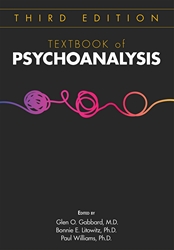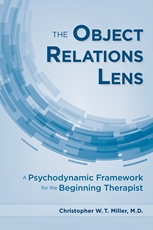The American Journal of Psychotherapy
Select Subscription Type
Description
The American Journal of Psychotherapy is a peer-reviewed, interdisciplinary journal published quarterly by the American Psychiatric Association. Begun in 1947 by the Association for the Advancement of Psychotherapy, The American Journal of Psychotherapy provides a forum for advancing the theory, science, and clinical practice of psychotherapy, publishing articles that expand the understanding of psychotherapies, especially in the domains of efficacy, process, education, and practice.
The journal publishes empirical papers on psychotherapy outcomes, process, measurement, and education. Maintaining a strong clinical focus, it welcomes case reports, review articles, and training tools that will guide and shape clinical practice.
To engage readers on the most urgent psychotherapy-related questions of the day, The American Journal of Psychotherapy invites a broad range of perspectives from all psychotherapy disciplines. Maintaining a strong clinical focus, it welcomes case reports, review articles, and psychotherapy tools that will guide and shape clinical practice.
Devoted entirely to psychotherapy, The American Journal of Psychotherapy provides authors and readers the opportunity to engage fully in pressing psychotherapy issues such as defining core elements of psychotherapies, dissemination of evidence-based practices, scaling best practices for expansion to larger populations, understanding mechanisms of change, and evaluating best practices for psychotherapy training and supervision.
In addition to regular articles, reviews, and brief reports, The American Journal of Psychotherapy will include
- Clinical Case Discussions – Disguised accounts of psychotherapeutic treatments of actual patients who present interesting problems or opportunities for an exploration of ideas that may help to advance the practice or understanding of psychotherapy. Clinical case discussions go beyond simple case reports by using the case material to illustrate an important theoretical, clinical, or conceptual issue. Examples include case formulations of clinical material as seen through contrasting psychotherapeutic lenses or a discussion of cultural issues raised by a course of psychotherapy.
- Psychotherapy Tools – Descriptions, reviews, or illustrations of the technical aspects of psychotherapy practice that can be used to improve or evaluate psychotherapeutic treatments. Examples include an overview of adherence measures employed to validate specific psychotherapies, a description of a novel intervention with case vignettes to illustrate salient clinical points, and a critique of distance-learning strategies for psychotherapy training. Psychotherapy Tools conclude with at least 5 bulleted recommendations, based on the article's content, that can be used to directly inform psychotherapy practice, training, or evaluation.
The American Journal of Psychotherapy inclusively addresses topics across treatment modalities (individual, group, family, technology-enabled), age groups (children, adolescents, midlife, late life), genders (binary, gender non-conforming), races and ethnicities, and diagnoses. The journal serves the international community by curating a vibrant, pluralistic, dialogue about psychotherapy that ultimately will inform clinical care.
To visit the American Journal of Psychotherpy online, please visit psychotherapy.psychiatryonline.org
About the Authors
Holly A. Swartz, M.D., Professor of Psychiatry, University of Pittsburgh School of Medicine
Dr. Swartz is recognized internationally for her research focusing on optimizing psychosocial treatments for mood disorders. Her research focuses on the role of Interpersonal and Social Rhythm Therapy (IPSRT) and pharmacotherapy in the management of bipolar II depression and Interpersonal Psychotherapy (IPT) in the management of maternal depression, both in the perinatal period and in the context of high-risk families with psychiatrically ill offspring. Currently, she is developing and testing an online version of IPSRT for treating bipolar disorder in primary care. She is also working on a project to develop a novel computational framework to model dyadic interpersonal behaviors in relation to psychotherapy (IPT and CBT) process and outcomes. Her research is supported by funding from the National Institute of Mental Health (NIMH), the Depression and Bipolar Alternative Treatment Foundation, the National Science Foundation (NSF), and the National Alliance for Research on Schizophrenia and Depression (NARSAD). She has widely disseminated her work, co-authoring 68 peer-reviewed journal articles and serving as the first or senior author for 27 of those publications. A graduate of Harvard College and Albert Einstein College of Medicine, Dr. Swartz completed her psychiatry residency and a research fellowship at the Payne Whitney Clinic at the New York Hospital/ Cornell University Medical Center. She has been the recipient of the Gerald L. Klerman Young Investigator Award from the Depression and Bipolar Support Alliance (2005) and the Klerman Interpersonal Psychotherapy Award from the International Society for Interpersonal Psychotherapy (2009) in honor of her outstanding research accomplishments. Her publication on brief psychotherapy for maternal depression was cited among the Top 10 NARSAD Advancements and Breakthroughs for 2016. She currently serves as Secretary/Treasurer for the International Society for Bipolar Disorders and recently concluded her two-year term as President of the International Society of Interpersonal Psychotherapy.
Related Products
Carousel Control - items will scroll by tabbing through them, otherwise arrows can be used to scroll one item at a time








